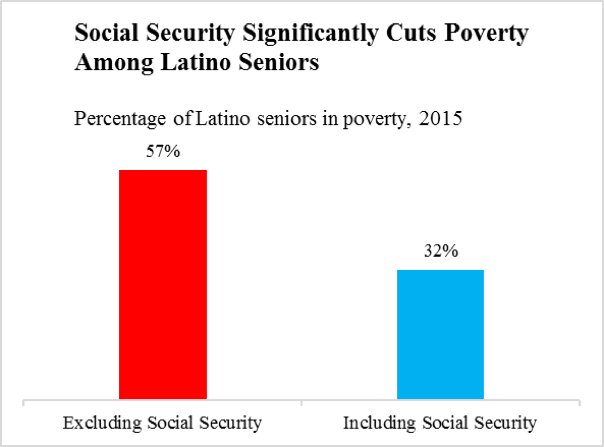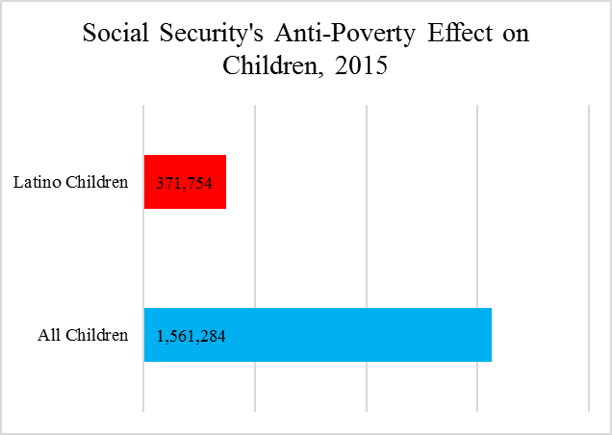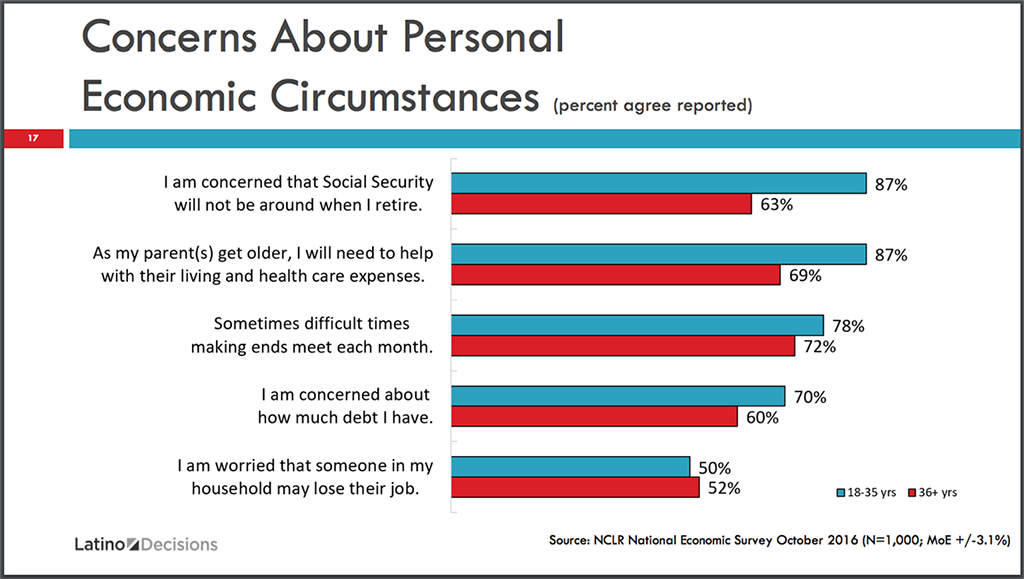Happy Anniversary Social Security!
By Renato Rocha, Policy Analyst, Economic Policy Project, UnidosUS
Today we celebrate the 82nd anniversary of Social Security––one of the most successful antipoverty programs in our nation’s history. Signed into law on August 14, 1935, the Social Security Act established financial protection for American workers, today offering retirement, disability, and survivor benefits to more than 60 million people.
Social Security benefits are especially important for the Latino community. In 2015 alone, income from Social Security kept 2.8 million Latinos out of poverty. This importance is even more pronounced when examining the strong antipoverty effect of Social Security on the oldest and youngest beneficiaries from our community:
- More than half of elderly Latinos would be poor without Social Security. Social Security benefits lift 1.2 million elderly Latinos out of poverty. With Social Security benefits, 24% of elderly Latinos have incomes below the poverty threshold. The number of Latinos ages 65 and older living in poverty would rise to over half, at 57%, without this income.

Source: UnidosUS analysis of 2016 data from Census Bureau’s Current Population Survey, Annual Social and Economic Supplement & Supplemental Poverty Measure public use file.
- Social Security lifted an estimated 372,000 Latino children out of poverty. Without Social Security benefits, the Latino child poverty rate would have been two percentage points higher at 26% in 2015. Latino children accounted for nearly one in four children lifted out of poverty by Social Security.

Source: UnidosUS analysis of 2016 data from Census Bureau’s Current Population Survey, Annual Social and Economic Supplement & Supplemental Poverty Measure public use file.
Given the importance of Social Security for elderly Latinos, as well as for Latino children and their families, it is no surprise that a 2016 UnidosUS poll found that Social Security’s future is a top concern for Latino voters. Seventy-three percent of Latino voters said they were worried that Social Security will not be around when they retire. Latino millennial voters (18-35 years old) are particularly concerned: 87% of millennial voters worry about the longevity of the program.
Many Latino households have seen first-hand the importance of Social Security benefits for the community––most Latino retirees (52%) rely on Social Security for at least 90% of their income, compared to 32% of White retirees. Social Security has become critical to Hispanic economic security for a number of factors: Latino workers receive lower lifetime earnings, have higher rates of disability, and are less likely to work for an employer that offers an employer-sponsored retirement plan. To illustrate the latter point, 62% of Latinos work for an employer that does not offer a retirement plan, compared to just 37% of Whites who do not have access to an employer-sponsored retirement plan. Saving through an employer plan is an effective means of saving for retirement, but many Latino workers do not have access to this opportunity.
In an effort to improve the retirement readiness of our nation’s working families, cities and states have begun to pursue their own retirement plans that workers can access regardless of where they are employed. Such efforts to expand retirement saving opportunities should be protected and make sense for the millions of workers who do not have access to an employer-sponsored retirement account. Opportunities to save for a secure retirement are few and far between, especially for many American households who continue to live paycheck to paycheck. As we celebrate its 82nd anniversary, Social Security now more than ever is a critical pillar in our nation’s social safety net.


